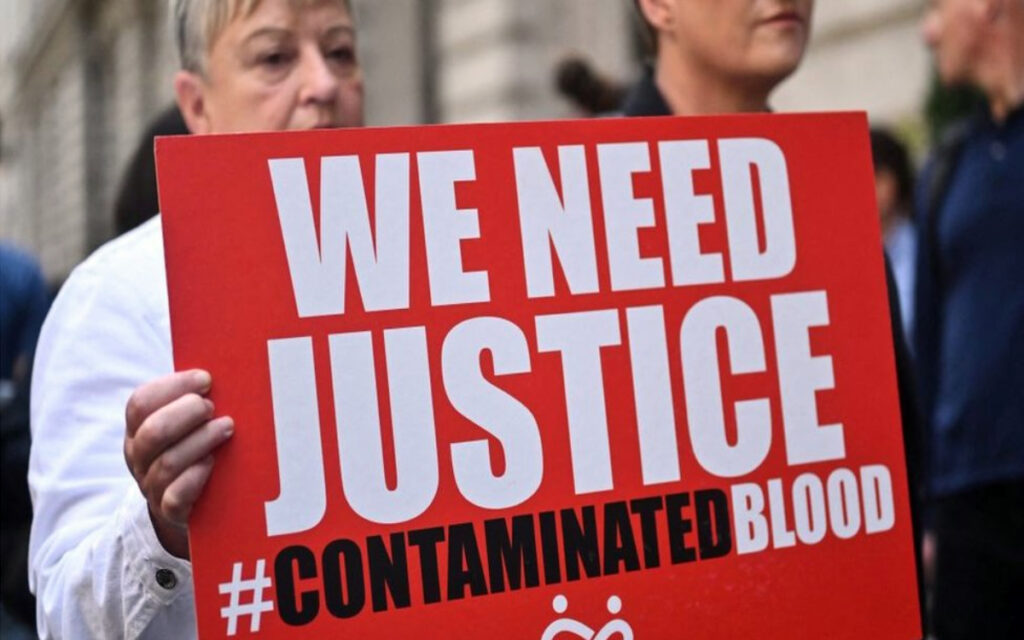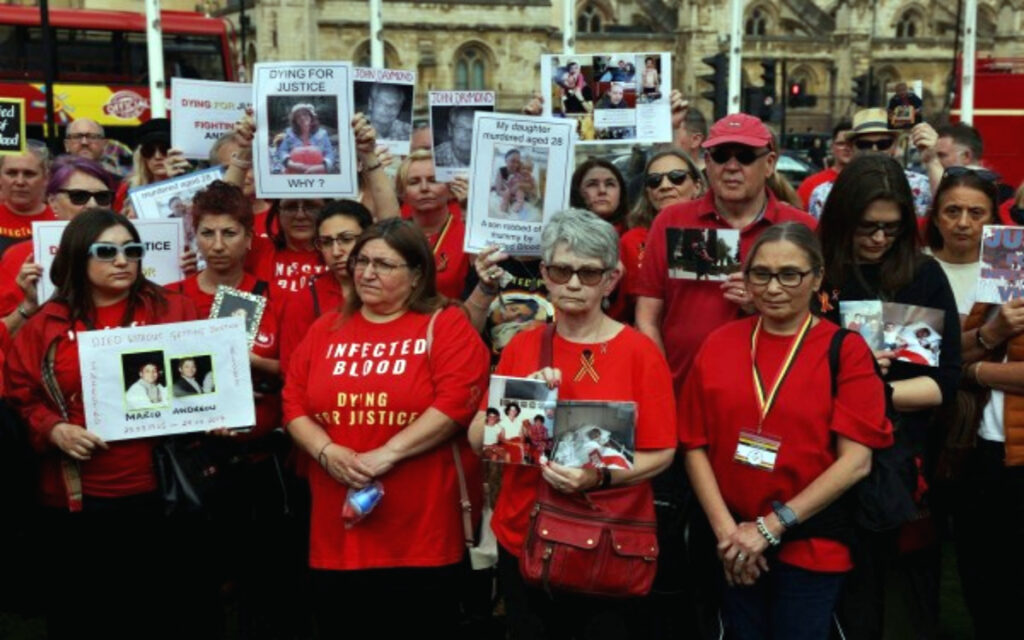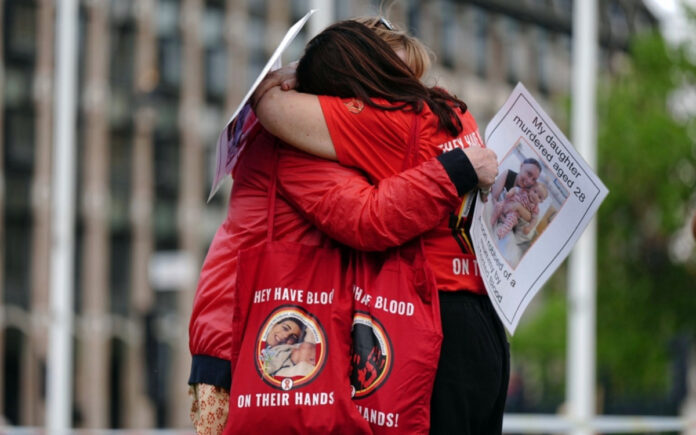London: A startling report unveiled on Monday unveils a harrowing UK catastrophe that remained shrouded in secrecy for decades, resulting in the deaths of thousands who received treatment with contaminated blood—a tragedy largely preventable.
The findings of the Infected Blood Inquiry expose a grievous saga spanning from the 1970s to the early 1990s, revealing that over 30,000 individuals in Britain were administered tainted blood, carrying potential infections such as hepatitis and HIV.
UK Prime Minister Rishi Sunak expressed profound regret on Monday for the systemic cover-up persisting over decades, where thousands suffered the consequences of receiving blood products tainted with infection.
“I want to make a wholehearted and unequivocal apology for this terrible injustice,” he conveyed to MPs, vowing to spare no expense in compensating those impacted and the families of victims who succumbed.
Among the casualties were individuals requiring blood transfusions post-surgeries or accidents, alongside those with blood disorders like hemophilia undergoing treatment with products derived from donated blood plasma.

In what stands as the gravest medical mishap in the eight-decade history of the state-operated National Health Service (NHS), close to 3,000 perished, with more anticipated to follow suit.
Children grappling with bleeding disorders were occasionally treated as “subjects for experimentation,” with many later contracting HIV and falling prey to hepatitis.
The long-awaited report, spanning over 2,500 pages, lays bare a “catalogue of failures” with “catastrophic” outcomes for victims and their families.
“I have to report that it could largely, though not entirely, have been avoided,” adjudged its author, Judge Brian Langstaff.
His team unearthed negligence on the part of successive administrations and healthcare professionals in mitigating risks, despite the clear indication by the early 1980s that AIDS could be transmitted via blood.
Blood donors underwent inadequate screening, and blood products were imported from abroad, including from the United States where donations from drug users and prisoners were accepted.
Furthermore, unnecessary transfusions were administered, exacerbating the crisis, the report delineated.
Efforts to conceal the scandal were also evident, with evidence suggesting that health department officials destroyed documents in 1993.

“Viewing the response of the NHS and of government overall, the answer to the question, ‘Was there a cover-up?’ is that there has been,” the report asserted. “Not in the sense of a handful of people plotting in an orchestrated conspiracy to mislead, but in a way that was more subtle, more pervasive and more chilling in its implications.”
“In this way there has been a hiding of much of the truth,” it added.
In addition to the 3,000 fatalities, countless others grapple with enduring health complications.
Langstaff lamented that “the scale of what happened is horrifying,” emphasizing that victims suffered not only from the initial betrayal but also from subsequent denials and false reassurances regarding their treatment.
When victims were eventually informed of the truth, often years later, the manner of disclosure was described as “insensitive” and “inappropriate”.
Also Read | Egypt Sounds Alarm as Gaza Offensive Claims 35,562 Palestinian Lives
“What I have found is that disaster was no accident. People put their trust in doctors and the government to keep them safe and that trust was betrayed,” Langstaff addressed reporters.
He recommended swift compensation for victims, with the government expected to unveil a package estimated at around £10 billion ($12 billion) on Tuesday.
Prime Minister Rishi Sunak is slated to express remorse when addressing parliament later on Monday.
Anticipating the inquiry, a government spokesperson remarked: “This was an appalling tragedy that never should have happened. We are clear that justice needs to be done and swiftly.”
Former Prime Minister Theresa May initiated the inquiry—one of the nation’s most extensive—in 2017.
Advocates hailed the report as the culmination of a protracted battle but acknowledged that it arrived too late for many victims who will never see justice.
Andy Evans, chairman of the Tainted Blood campaign group, hailed the report as “historic” and felt “validated and vindicated.”
“We have been gaslit for generations… Sometimes we felt like we were shouting into the wind during the last 40 years,” he imparted to reporters.



